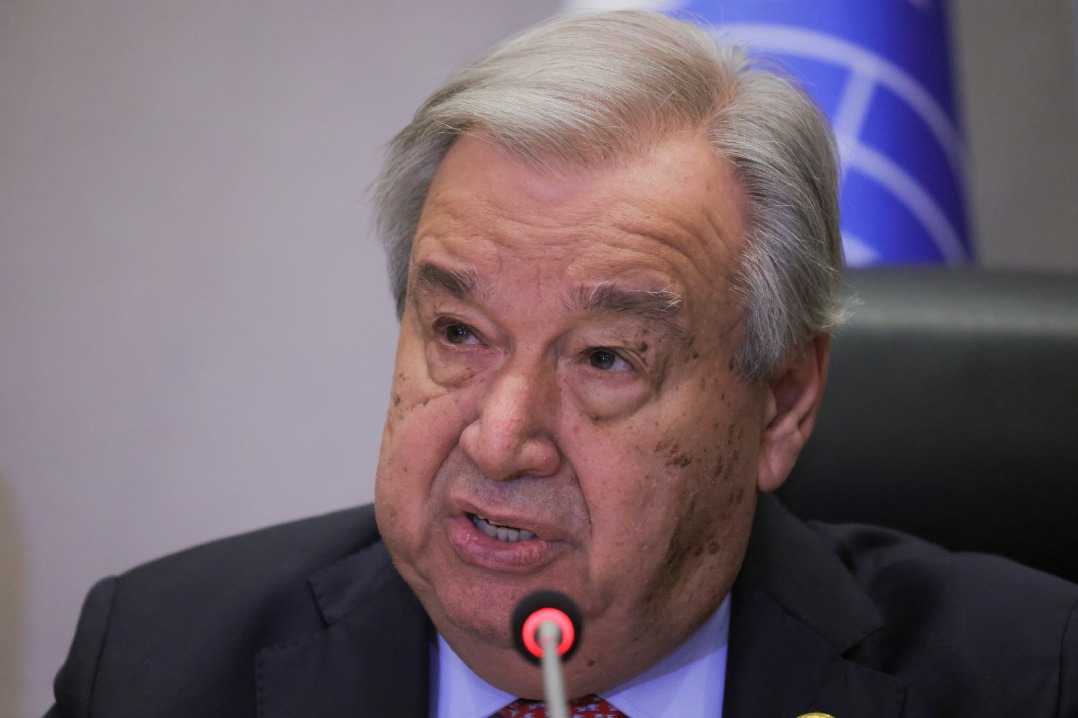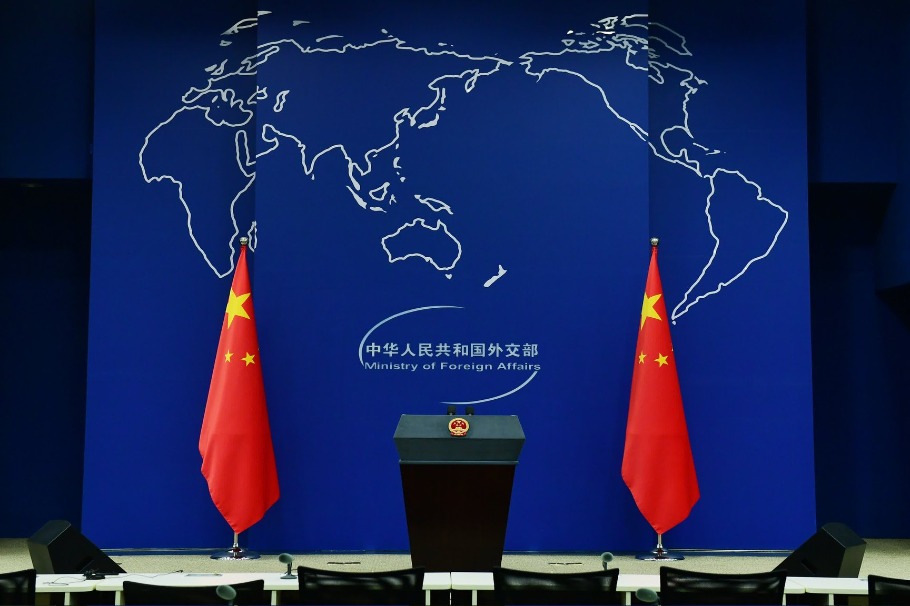Action on Chinese firms slammed
By Zhao Huanxin in Washington | China Daily | Updated: 2023-06-01 07:17

US sanctions hamper counternarcotics endeavors between Washington, Beijing
US sanctions against China-based companies and citizens for alleged involvement in the production of illicit drugs will create more obstacles to counternarcotics cooperation between the two countries, a Chinese embassy spokesman said on Tuesday.
The US Treasury Department said in a statement that it slapped sanctions on seven entities and six people based in China, as well as one business and three people based in Mexico, accusing them of enabling counterfeit, fentanyl-laced pill production.
"While saying it hopes to resume counternarcotics cooperation with China on various occasions, the US has again brazenly sanctioned Chinese individuals and entities, which is a serious violation of the lawful rights and interests of the companies and individuals concerned," said embassy spokesman Liu Pengyu.
"China strongly condemns this."
The US statement said the targeted Chinese entities and individuals are "directly or indirectly" involved in the sale of pill-press machines, die molds and other equipment used to impress counterfeit trade markings of legitimate pharmaceuticals onto illicitly produced pills, often laced with fentanyl and frequently destined for US markets.
Liu said it is widely known that pill-press machines and die molds are common commodities with legitimate uses and are widely used in industrial production.
"According to the common practice across the world, to ensure that the goods imported are not used for illicit purposes is not only the basic responsibility of the enterprises, but also the legal obligation of the governments of importing countries."
Guided by the humanitarian spirit, China has worked with the United States to help solve its fentanyl abuse, Liu said, adding that in May 2019, China became the first country in the world to officially schedule fentanyl-related substances as a class, which played an important role in preventing the illicit manufacturing, trafficking and abuse of the substance.
But the US used the so-called human rights issue in the Xinjiang Uygur autonomous region to impose sanctions on the Institution of Forensic Science of the Ministry of Public Security and the National Narcotics Laboratory of China.
In a statement, the Chinese embassy said the US is the root cause of its own drug problems. With 5 percent of the world's population, the country consumes 80 percent of the world's opioids. Yet, the US has not permanently scheduled fentanyl-related substances as a class.
It noted that as China and the rest of the world strengthen control of fentanyl-related substances, the fentanyl issue in the US has been deteriorating and taking away more lives.
Overdose deaths
The rate of drug overdose deaths involving the synthetic opioid fentanyl more than tripled in the US from 2016 through 2021, said a report by the US Centers for Disease Control and Prevention on May 3.
Opioids were involved in 68,630 overdose deaths in 2020, or nearly 75 percent of all drug overdose deaths in the US, according to CDC data released in June last year.
Instead of working to reduce the demand for drugs at home, strengthen management of prescription drugs and step up public awareness campaigns about the harm of narcotics, the US is imposing new sanctions on Chinese companies and individuals and attempting to blame China for its own fentanyl problem, the Chinese statement said.
"This has seriously eroded the foundation for China-US counternarcotics cooperation."
If the US genuinely wants to solve its drug problem, it should respect facts, reflect on itself, correct its wrongdoings and stop shifting the blame, it said.
China will continue to do what is necessary to safeguard the lawful rights and interests of Chinese companies and individuals, it added.
In a late September interview with Newsweek, Qin Gang, then-Chinese ambassador to the US, said the fentanyl crisis in the US was not created by China. On the contrary, China is a "well-intentioned" and "sincere" partner ready for international cooperation and for global co-governance on counternarcotics, he said.
Historically, China was a painful victim of opium, and part of its history has made China naturally empathize and proactively cooperate with the US and other countries in their fight against narcotics, Qin said.
However, some people in the US believe that China is the primary source of the epidemic's deadliest drug, fentanyl, and some even claim that China is shipping fentanyl to the US "as a form of payback for the Opium Wars".
"These comments are false and misleading," Qin said.
























